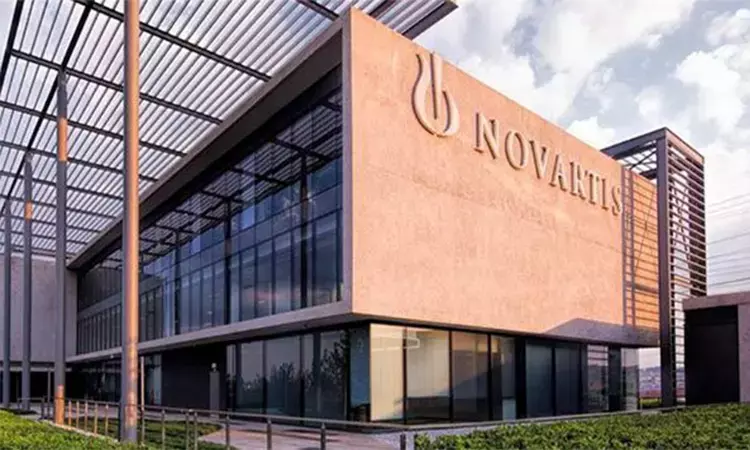- Home
- Medical news & Guidelines
- Anesthesiology
- Cardiology and CTVS
- Critical Care
- Dentistry
- Dermatology
- Diabetes and Endocrinology
- ENT
- Gastroenterology
- Medicine
- Nephrology
- Neurology
- Obstretics-Gynaecology
- Oncology
- Ophthalmology
- Orthopaedics
- Pediatrics-Neonatology
- Psychiatry
- Pulmonology
- Radiology
- Surgery
- Urology
- Laboratory Medicine
- Diet
- Nursing
- Paramedical
- Physiotherapy
- Health news
- Fact Check
- Bone Health Fact Check
- Brain Health Fact Check
- Cancer Related Fact Check
- Child Care Fact Check
- Dental and oral health fact check
- Diabetes and metabolic health fact check
- Diet and Nutrition Fact Check
- Eye and ENT Care Fact Check
- Fitness fact check
- Gut health fact check
- Heart health fact check
- Kidney health fact check
- Medical education fact check
- Men's health fact check
- Respiratory fact check
- Skin and hair care fact check
- Vaccine and Immunization fact check
- Women's health fact check
- AYUSH
- State News
- Andaman and Nicobar Islands
- Andhra Pradesh
- Arunachal Pradesh
- Assam
- Bihar
- Chandigarh
- Chattisgarh
- Dadra and Nagar Haveli
- Daman and Diu
- Delhi
- Goa
- Gujarat
- Haryana
- Himachal Pradesh
- Jammu & Kashmir
- Jharkhand
- Karnataka
- Kerala
- Ladakh
- Lakshadweep
- Madhya Pradesh
- Maharashtra
- Manipur
- Meghalaya
- Mizoram
- Nagaland
- Odisha
- Puducherry
- Punjab
- Rajasthan
- Sikkim
- Tamil Nadu
- Telangana
- Tripura
- Uttar Pradesh
- Uttrakhand
- West Bengal
- Medical Education
- Industry
Novartis Sandoz unit may be a tough pill for buyers to swallow: Bloomberg

New Delhi: Novartis AG expects revenue at its generic-drugs unit to continue declining in the U.S. throughout this year, highlighting some of the challenges for potential buyers as private equity groups weigh the merits of the business.
The disappointing outlook came as Chief Executive Officer Vas Narasimhan reported stagnant profit for last quarter at the generics division, called Sandoz. Novartis doesn't expect the unit's U.S. sales to rebound until next year.
Buyers are debating whether Sandoz is worth the asking price of $25 billion or more, and it's not yet clear exactly which parts of the business will be included if it's put up for sale, people familiar with the process said. One major concern is that some of the unit's production remains enmeshed with other parts of Novartis's business, said the people, who asked not to be identified because the information is private.
What to do with Sandoz is one of the biggest questions facing Narasimhan -- and one he pledged on Wednesday to answer by the end of the fourth quarter. The company has said it's keeping all its options open, but he'll likely want to address any uncertainty to avoid distracting employees and ensure Sandoz remains competitive in the aggressive business of copycat medicines.
The unit has drawn "a lot of interest" from private equity as well as interest from other generics manufacturers, Narasimhan said in a Bloomberg Television interview. "We still need to see, of course, concrete proposals," he said. "It's all in flux at the moment. We're very much in a position of listening."
Novartis shares fell as much as 3.7% in Zurich amid concern that the unit's lackluster performance could complicate a potential sale. The report is "likely to heap further pressure on management to resolve the unit's future," said John Murphy, an analyst at Bloomberg Intelligence.
Novartis would prefer to sell the business if it receives an attractive price, the people said. One potential downside of a spinoff is that generics businesses like Sandoz tend to trade a lower multiples than pharmaceutical companies, so existing investors could be left holding less valuable shares, the people said.
The Swiss drugmaker announced the strategic review of Sandoz in October. The division makes generic drugs, and it's expanded in recent years into a potentially lucrative but complex market: making biosimilar copies of biological medicines for cancer, arthritis and other diseases.
Production question
Making biosimilars is more challenging than copying chemical drugs because the duplicates, produced in a soup of cells, aren't identical to the originals in the same way that traditional generics would be. Regulators therefore demand evidence that the copy is similar enough to the original.
Including Novartis's biosimilars business is key in achieving the $25 billion price tag for the Sandoz unit, people close to the process said. But unwinding the Sandoz production from Novartis's own won't be easy: Narasimhan confirmed Wednesday that Novartis provides manufacturing for the biosimilars developed and commercialized by Sandoz. The division is working on building its own production capacity, he said.
Big private equity players are already looking closely. Blackstone Inc. and Carlyle Group Inc. are in talks about potentially teaming up on a bid, people with knowledge of the matter said. Advent International, Hellman & Friedman and KKR & Co. are separately weighing bids, they said.
Sweden's EQT AB is working with Germany's Struengmann family, who previously sold their generic-drugs business to Novartis, as it studies an offer, the people said. Others examining the business include German drugmaker Stada Arzneimittel AG's private equity owners, Cinven and Bain Capital, they said.
The potential suitors could still decide not to proceed. Novartis has also said that it may choose to keep Sandoz after all
Read also: Novartis pushes forward with Covid drug after positive trial: Bloomberg
Ruchika Sharma joined Medical Dialogue as an Correspondent for the Business Section in 2019. She covers all the updates in the Pharmaceutical field, Policy, Insurance, Business Healthcare, Medical News, Health News, Pharma News, Healthcare and Investment. She has completed her B.Com from Delhi University and then pursued postgraduation in M.Com. She can be contacted at editorial@medicaldialogues.in Contact no. 011-43720751


